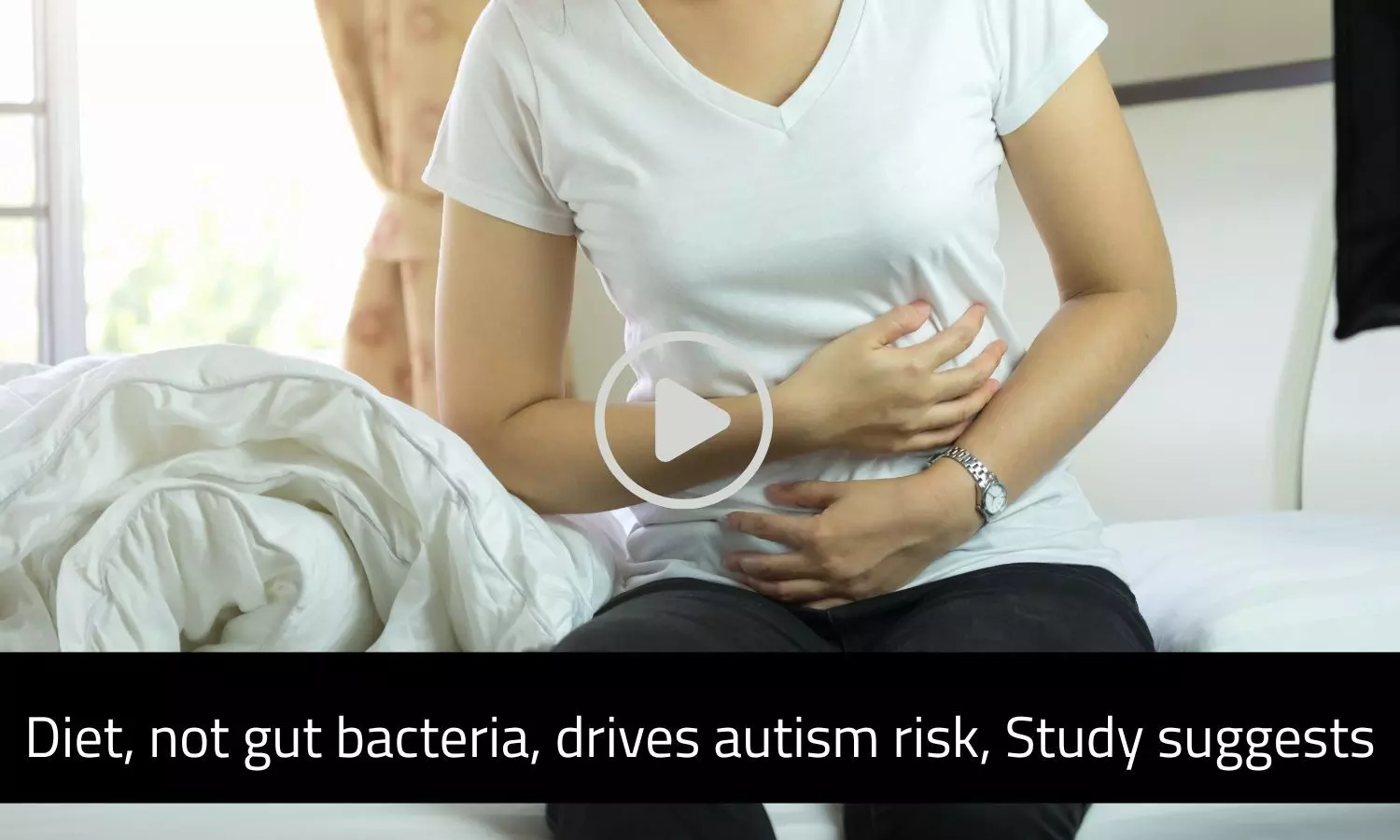Diet, not gut bacteria, drives autism risk, Study suggests
- byDoctor News Daily Team
- 08 November, 2025
- 0 Comments
- 0 Mins

Scientists have long debated whether gut microbiome differences could drive autism, but new evidence points to behavior and diet as key factors instead. In a recent study published inNutrients, researchers found that children with autism spectrum disorder (AUTISM SPECTRUM DISORDER) exhibited strikingly different eating patterns from their non-AUTISM SPECTRUM DISORDER family members, yet their gut microbiome diversity was virtually identical. This finding suggests that, at least within families, selective eating in AUTISM SPECTRUM DISORDER may shape the microbiome more than the other way around. Autism is a rising neurodevelopmental condition characterized by social and behavioral challenges, often accompanied by gastrointestinal issues and pronounced food selectivity. With past research hinting at links between microbiome composition and AUTISM SPECTRUM DISORDER symptoms, this study set out to disentangle the complex relationship between microbial communities, diet, and behavior in affected children versus their siblings and parents. Researchers recruited 17 AUTISM SPECTRUM DISORDER children, 9 non-AUTISM SPECTRUM DISORDER siblings, and 27 parents from Italian families, extending dietary analysis to 79 individuals in total. Fecal samples were collected and analyzed using advanced DNA sequencing to assess both bacterial and fungal components of the microbiota. Seven-day food diaries and food-frequency questionnaires provided a detailed snapshot of dietary intake, categorized into eight food groups. Microbial diversity and community structure were evaluated using robust statistical approaches, with dietary and microbiome data integrated using linear mixed-effects models that controlled for shared genetics and environment within families. Gut microbiome analysis showed no significant differences in bacterial or fungal diversity between children with AUTISM SPECTRUM DISORDER and their family members, contradicting some previous reports of microbiome “dysbiosis” in autism. However, dietary profiles differed markedly: AUTISM SPECTRUM DISORDER children ate more sugary foods and fewer vegetables than both siblings and parents, and these group-level dietary distinctions were statistically significant. Smaller differences in fruit and processed food intake mainly distinguished children from adults, rather than AUTISM SPECTRUM DISORDER from non-AUTISM SPECTRUM DISORDER. The study’s strengths include its within-family design, which controls for genetics and environment, and its integration of both microbiome and dietary data. However, the small sample size and cross-sectional nature limit the ability to draw causal conclusions. Notably, some associations faded on more complex modeling, highlighting the need for larger studies. Lead author Dr. Valentina Pontrelli notes that these results support a model in which dietary habits, influenced by AUTISM SPECTRUM DISORDER behaviors, may be the primary drivers of microbiome differences within families. Larger, multi-omic studies will be necessary to clarify whether subtle microbiome effects emerge when genetic and dietary variables are rigorously controlled, and to optimize dietary interventions for children with AUTISM SPECTRUM DISORDER. REFERENCE: Di Benedetto, G., Sorge, G., Sarchiapone, M., & Di Martino, L. (2025). Dietary Patterns, Not Gut Microbiome Composition, Are Associated with Behavioral Challenges in Children with Autism: An Observational Study. Nutrients 17(21): 3476. DOI: 10.3390/nu17213476, https://www.mdpi.com/2072-6643/17/21/3476
Disclaimer: This website is designed for healthcare professionals and serves solely for informational purposes.
The content provided should not be interpreted as medical advice, diagnosis, treatment recommendations, prescriptions, or endorsements of specific medical practices. It is not a replacement for professional medical consultation or the expertise of a licensed healthcare provider.
Given the ever-evolving nature of medical science, we strive to keep our information accurate and up to date. However, we do not guarantee the completeness or accuracy of the content.
If you come across any inconsistencies, please reach out to us at
admin@doctornewsdaily.com.
We do not support or endorse medical opinions, treatments, or recommendations that contradict the advice of qualified healthcare professionals.
By using this website, you agree to our
Terms of Use,
Privacy Policy, and
Advertisement Policy.
For further details, please review our
Full Disclaimer.
Recent News
Can creatine help with depression? New Review Find...
- 08 November, 2025
Female Patients with Culture-Negative Endocarditis...
- 08 November, 2025
Flavanols in cocoa can protect blood vessel functi...
- 08 November, 2025
Daily Newsletter
Get all the top stories from Blogs to keep track.


0 Comments
Post a comment
No comments yet. Be the first to comment!